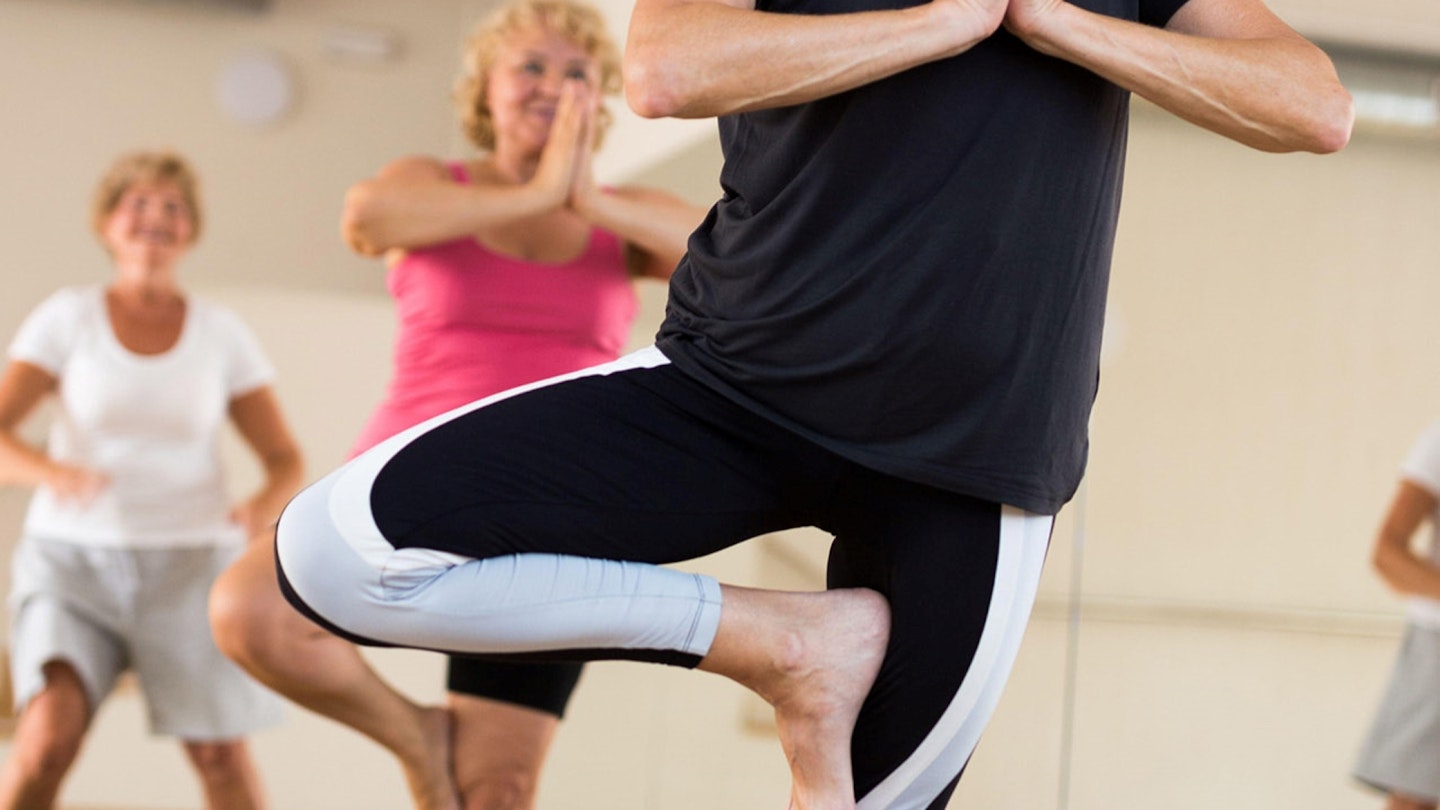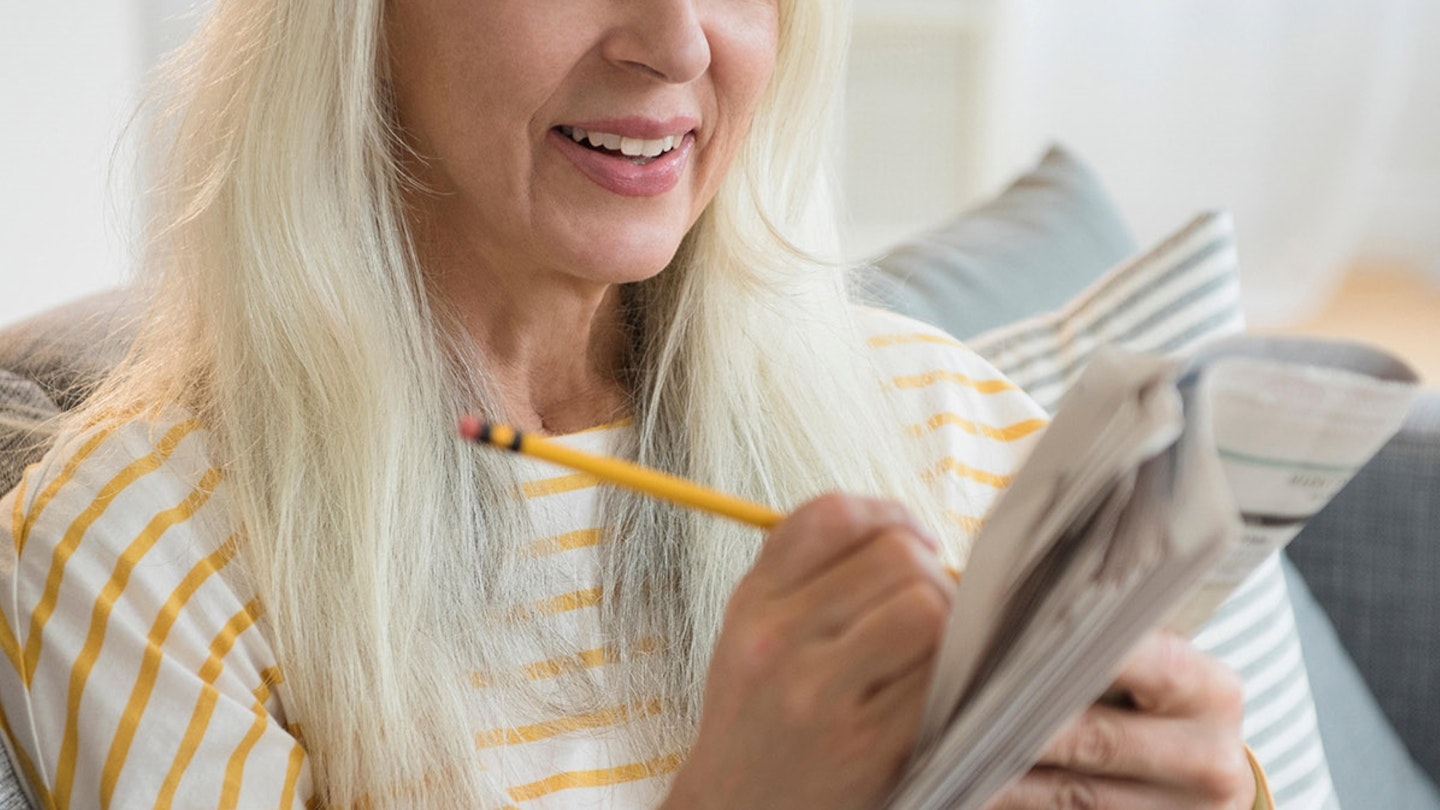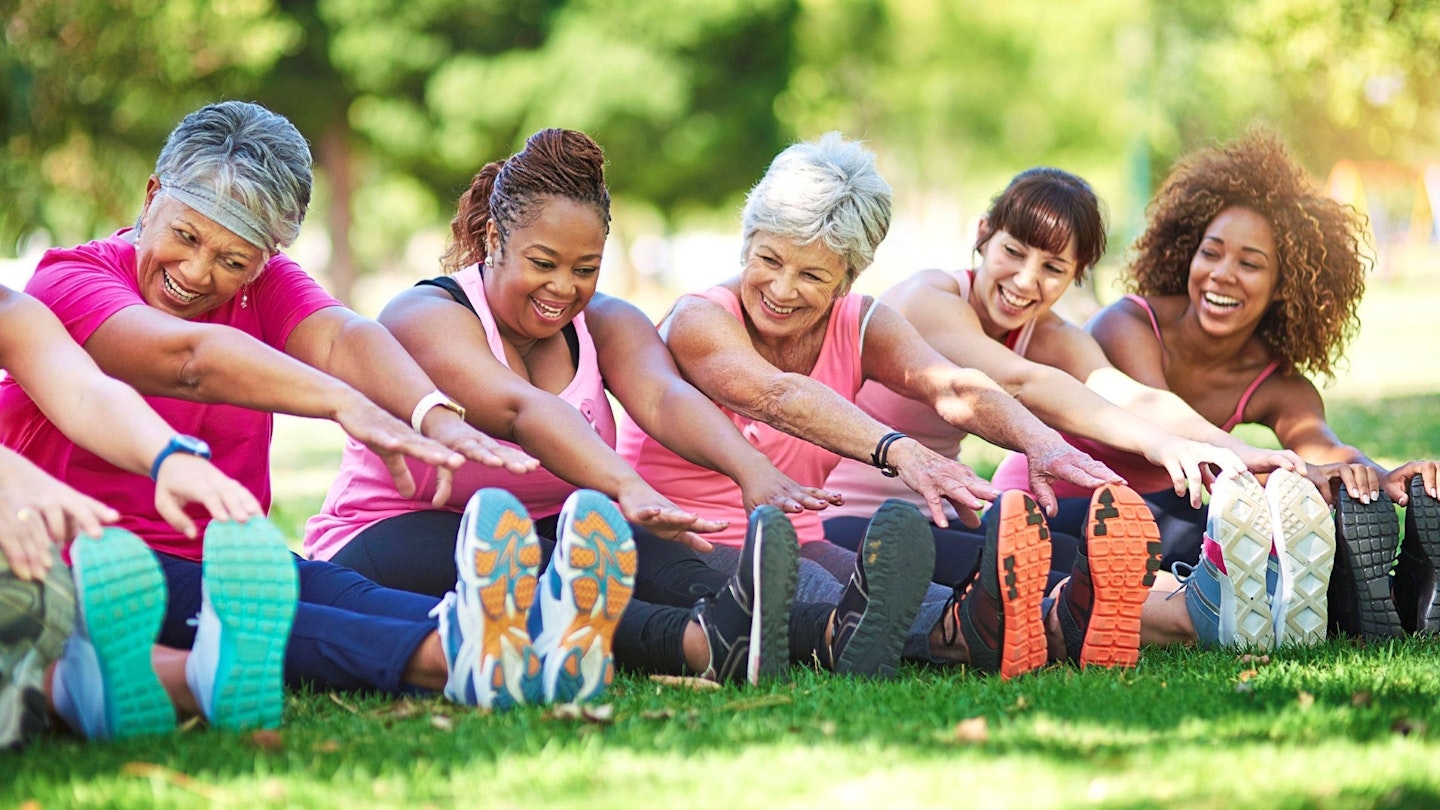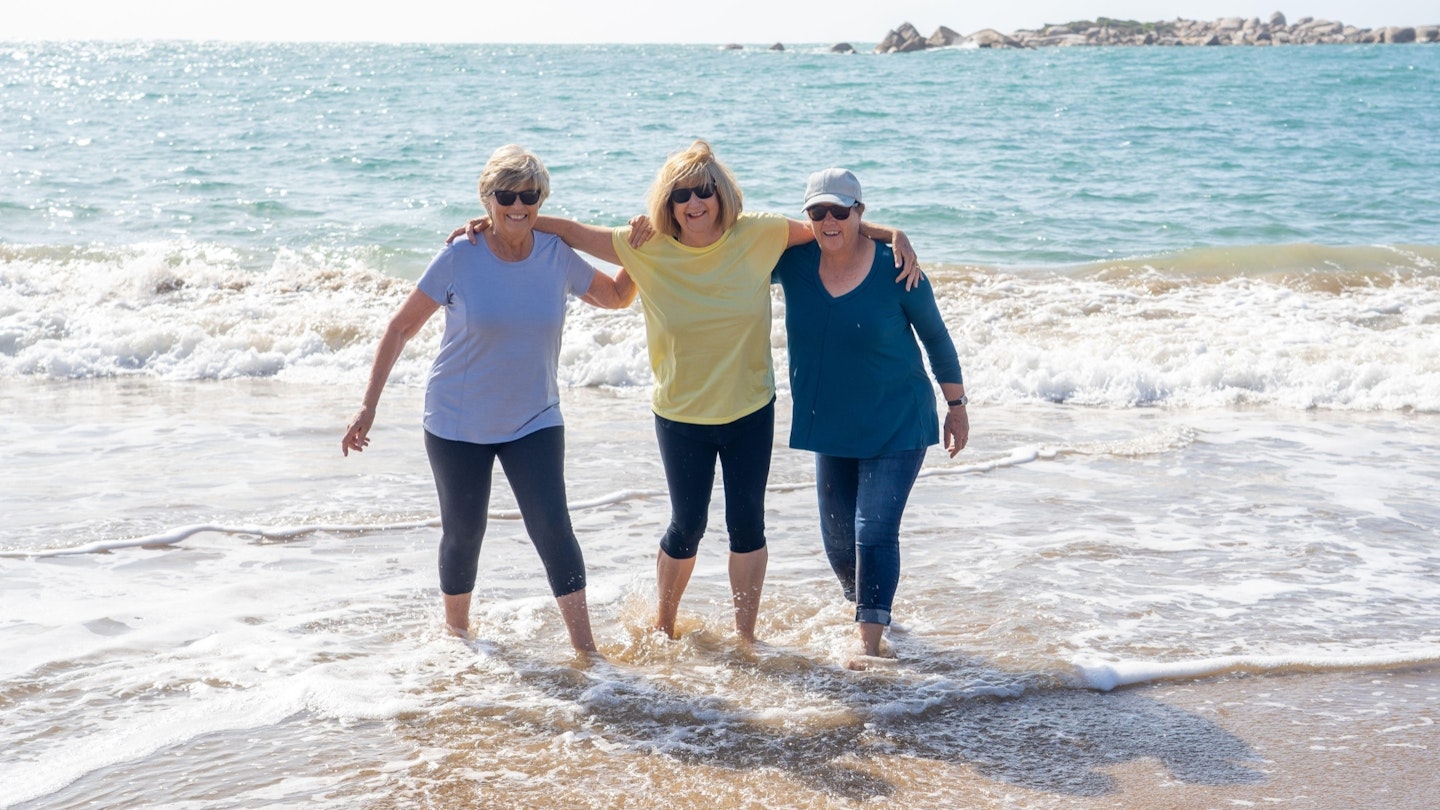Ageing well isn’t just about looking younger — it’s about feeling your best, staying active, and enjoying life to the fullest. The concept of “successful ageing” focuses on maintaining your physical health, mental sharpness, and emotional wellbeing as the years go by. The good news? It’s never too late to start making positive changes. Whether you’re in your 40s, 50s or beyond, small, sustainable habits can have a huge impact on how you feel now and in the future. We asked health and lifestyle experts to share their top 10 tips for living a longer, stronger, and happier life.
1. Value friendships

We all know how good company uplifts and energises us, now it can keep us younger too. Supportive social friendships have been linked to higher levels of physical, emotional, and cognitive health. Making time for friends and being proactive and consistent is key: texting or calling a friend, sending a thoughtful card, remembering anniversaries and birthdays, joining an online group, and planning regular meet-ups are all good ways to maintain friendships and make new ones. For a double ageing boost, seek out youthful company. One study found that hanging out with younger friends knocked two years off your perceived age!
2. Improve your balance

You can feel less steady on your feet with age, leaving you feeling less independent or confident about doing everyday tasks. “To reduce the risks of tripping and slipping, work to improve your balance and stability,” says personal trainer Marios Iacovou. “You can do this by incorporating a daily yoga practice, which will make you feel more mindful and energised while developing strength, core stability, and flexibility.”
Marios suggests a simple standing pose, such as ‘tree pose’ (vrksasana). “This pose will develop strength and stability in the feet and ankles and all core muscles, helping you to stay balanced.” If you’re a beginner, try guided session with an instructor, or if you’re online and feel confident to start an independent practice, YouTube has yoga channels for all levels run by qualified instructors – Marios recommends Yoga with Adriene.
3. Boost your memory

We love a puzzle here at Yours – and they can boost your brain power too. Studies show that doing puzzles, crosswords, and Sudoku stimulates different parts of the brain and helps to strengthen cognitive skills like spatial memory, reasoning, and thinking. Meanwhile, jigsaw puzzles in particular may help us relax and reduce stress, according to research.
The best brain training games to play online, according to Age UK
-
CogniFit
-
Lumosity
-
Peak – Brain Training
-
Brain Gymmer
-
The Jigsaw Puzzles
-
Wordle
-
BrainHQ
4. Get a grip
Hand strength has been shown to have a strong relationship with general wellbeing. Weak grip has been linked to poor cognitive function, osteoporosis, obesity, rheumatoid arthritis, diabetes, and poor muscular skeletal health. It doesn’t mean a weak grip is necessarily a symptom of something else, but there are easy ways to improve your grip. Experts recommend repeated squeezing of an object at 80 per cent of your maximum capacity, or wringing out a wet towel, holding the ‘squeeze’ position for around 30 seconds.
5. Have new experiences

A new hobby can be a great confidence booster
“As you age, embracing new experiences and pushing your boundaries can have many positive effects,” says Sharon Crossett. “It aids in keeping your mind sharp and agile and expands the perspectives you hold in the world, promoting empathy and understanding with others. Engaging in new activities and discovering hidden talents and hobbies can give you a new zest for life. Each week try to incorporate a new challenge, such as adopting a new exercise routine to push yourself further. New experiences also foster resilience and help you to adapt to an ever-changing world.”
6. Stay on top of your health
Just as you maintain your car and home, it’s important to pay the same attention to your health. Have preventative yearly check-ups, take up vaccines if they apply to you and make an appointment to see a doctor if a problem arises. “It's never too late, or too often to check yourself,” says GP James Fisher. “Breasts, balls and any new lumps and bumps: get to know what is normal for you – and what isn't. Early detection means a high chance of survival.” Also, make sure you visit the dentist regularly. “More research is needed but poor dental health has been linked to cognitive decline and dementia,” says James.
7. Don’t sit down too much

Studies show that too much sedentary behaviour (six hours plus a day) increases the chance of cardiovascular disease and type 2 diabetes, as well as a higher rate of hospitalisation. “It is important to be mindful about the length of time you spend sitting each day,” says personal trainer Marios Iacovou. “By moving more, you can maintain good muscle strength, regain flexibility, and core stability, which in turn will help support your balance and avoid injury.”
Marios’ tips to moving more:
-
Walk when you can by leaving the car at home for short journeys.
-
Aim not to sit down for extended periods. Take a short break every 15 minutes. In the break you can walk up and down the stairs, or practice some gentle squat exercises.
-
Discover or engage in hobbies that get you moving more.
-
Practice standing up and sitting down, using your arms only as you need for balance. Using a stable chair, ideally with armrests, you can use only one hand for support when standing and sitting, if you usually use two. Once you’re comfortable with just one hand, you can progress this further by using no hands if you’re feeling strong and confident.
8. Volunteering
Studies show that adults over age 50 who volunteer on a regular basis are less likely to develop high blood pressure, while volunteering leads to lower rates of depression and anxiety, especially for people 65 and older. Volunteering helps you forge new connections, feel useful, and can put your own problems into perspective. Find a cause that is close to your heart, but also be mindful that you don’t give up too much of your time that it has a detrimental effect. Research shows there are health benefits from 100 hours of volunteering a year, which works out at just under two hours a week.
9. Positive thinking
Happier means healthier – a report by The World Health Organisation reports that positive thinking can increase life expectancy by 7.5 years. “A positive mindset can have many health benefits as you age,” says women’s life coach Sharon Crossett. “It reduces stress and enhances the relationships you have with other people, helping to combat loneliness. You are more likely to have a better diet, exercise more, and take better care of yourself if you are a positive thinker, helping you to have a longer, fitter, happier life. An easy way to incorporate positive thinking into your life is to write everything you are grateful for in a gratitude journal.”
10. Love yourself
“The more you care for and respect yourself, the better your physical, emotional, and mental wellbeing,” says Sharon Crossett. “It makes ageing a healthier and more positive experience. When you appreciate yourself, you are more likely to eat well, exercise, and practice rituals that enhance your life. Try developing a self-love mantra that you repeat daily, such as: ‘I am strong and worthy’ to demonstrate your worth to yourself.”
Meet the experts
-
Marios Iacovou is a personal trainer who works with seniors and offers customised training guidance, nutrition support, flexibility, and healthy living tips.
-
Sharon Crossett is a life coach who specialises in helping women to take control of their lives and find balance.
-
GP James Fisher is a family doctor from Norfolk
Jo Carnegieis a seasoned journalist and author with over 25 years of experience in the wellness and lifestyle sectors. Formerly the Deputy Editor of Heat magazine, she is renowned for her insightful celebrity interviews. Jo has published nine women's fiction books and is also an accomplished ghostwriter.
